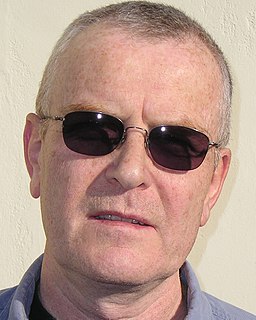A Quote by Seyyed Hossein Nasr
If you have a billion Muslims, 900 million of them were not brought into Islam by any kind of invasion, but most of them through the Sufis, because human beings are such that they are affected by people of spiritual character. Certainly when they display nobility and hospitality and gentility and love and are not selfish or aggressive, and they are honest.
Related Quotes
When people talk as if the Crusades were nothing more than an aggressive raid against Islam, they seem to forget in the strangest way that Islam itself was only an aggressive raid against the old and ordered civilization in these parts. I do not say it in mere hostility to the religion of Mahomet; I am fully conscious of many values and virtues in it; but certainly it was Islam that was the invasion and Christendom that was the thing invaded.
Look at Senegal, about 90% of the Muslims in Senegal are Tijani or Qadiri Sufis. Among them, they have very great teachers who have written poems about al-Hallaj, and they have not been killed. In fact, it's Sufism that brought Islam through all of Senegal, right under our noses the last couple of centuries. And you can go down the same line through Indonesia and Malaysia.
Sufis have always been those that have tried to purify the ethics of Islam and society. And they don't have their hands cut off from the external action at all. For example, the bazaar in which the Sufis were very strong always dominated economic life in Islamic world. They could give a much more sane and Islamic form of activity when the economic life of Islam moved out of the bazaar to new parts of Islamic cities with modernized Muslims, who took it in another light and it became very, very anti Islamic, and much against many of the most profound practices of Islamic societies.
300 years after the rise of Islam there were Zoroastrians in Iran. The Muslim armies never forced people to accept Islam. It was only within Arabia that God ordered the idolaters to have a choice of either embracing Islam or fight against Muslims, because He wanted to remove this terrible idolatry that exited there. But outside Arabia where Islam met Christians, Jews, Zoroastrians and Hindus, they were given a choice by and large. That's why many Christians and Jewish communities survived in the Muslim world, but gradually many of them embraced Islam for different reasons.
Rather than being a 'perversion' of Islam, it is truer to say that the version of Islam espoused by ISIS, while undoubtedly the worst possible interpretation of Islam, and for Muslims and non-Muslims everywhere obviously the most destructive version of Islam, is nevertheless a plausible interpretation of Islam.
Muslims know that Islam clashes with Western Civilization. They make no bones about choosing Islam over their new home country, like the Syrians in Germany, or the Somali at Ohio State University. They are very open and honest on polls, because they know they have nothing to fear from the governments that welcomed them with open arms.
We can use wealth, intelligence, education or health in harmony with our compassionate spiritual nature, or we can use them according to the selfish concerns of our particular egos. We have choices as human beings. We can be saints or we can be terrorists. We can be peaceful or we can be miserable. When we see everything in the world as God's sacred property, then we're seeing the spiritual potential, the spiritual substance, everywhere.
We know they have nothing to do with Islam because our politicians keep telling us that, and they are all Islamic scholars. (They are, aren't they?) Yes, the violence is coming exclusively from Muslims, but only because their religion (the one that has nothing to do with Islam) tells them to kill unbelievers, meaning people who don't follow the religion with a knife to our throat that has nothing to do with Islam.
One of the things that I tell beginning writers is this: If you describe a landscape, or a cityscape, or a seascape, always be sure to put a human figure somewhere in the scene. Why? Because readers are human beings, mostly interested in human beings. People are humanists. Most of them are humanists, that is.






























